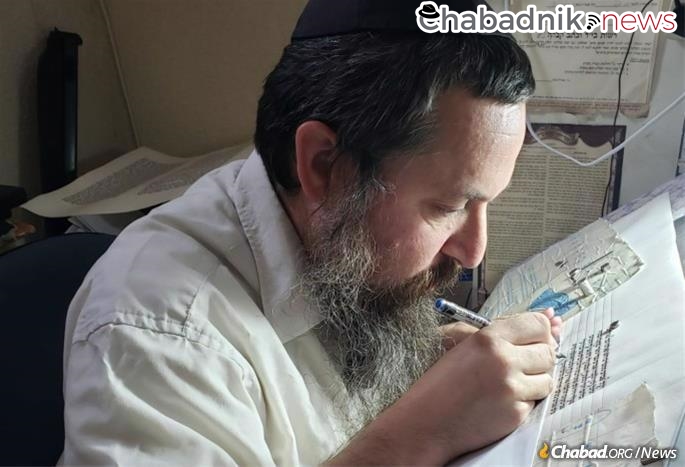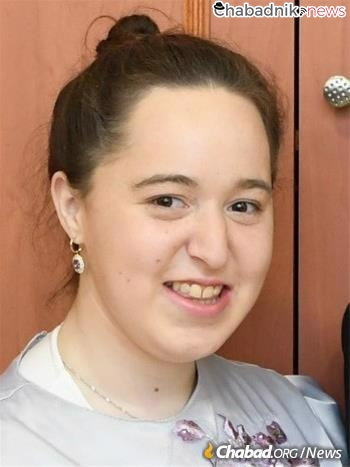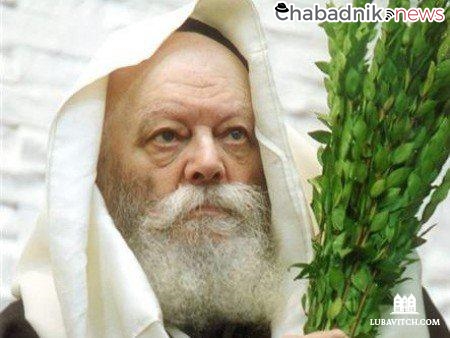The Torah will bring healing and comfort to a shattered family and community

The scribe dips his quill into the black ink and brings it to the parchment. With intense focus, he begins to outline a Hebrew letter. This letter, along with 304,805 other handwritten letters, will form a Torah scroll. For four hours daily, scribe Rabbi Mordechai Ross toils over his parchment. It’s always a labor of love for this trained scribe, but this parchment is especially so.
Mordechai and Bracha Ross, of Beitar Illit, Israel, tragically lost their daughter over the Sukkot holiday. Sima Ross, 19, came home from a get-together with friends, wished her father a good night and never woke up. Sima was a young woman with a full life ahead of her; she’d recently completed her bagruyot (the Israeli equivalent of Regents exams) and dedicated a year of full-time Judaic study at a Jerusalem women’s seminary. She was signed up to further her education to become a teacher.
“She was starting to go forward in life,” her mother, Bracha Ross, tells Chabad.org. Beloved and cherished by her family and friends, Sima passed away peacefully in her sleep.
After the loss of a loved one, friends and relatives often look for ways to increase in mitzvot and Torah study in their merit. Mordechai and Bracha’s children’s schools began a program to encourage students to say the blessing over food and drink aloud, something that Sima was always careful to do. But her parents embarked on a project of their own. “We wanted to do more to add in her merit,” they say.
And so, Mordechai set about to write a Torah scroll in his daughter’s memory to be used at the Chabad shul the family attends in Beitar. Instead of writing scrolls in memory of other families’ loved ones, as he has done for 18 years now, the scribe is devoting his holy work for his own child’s memory.

“It’s very emotional,” he acknowledges. And while handcrafting a Torah scroll is always a precise work with limited room for error, this time, it’s personal.
“Ordinarily, if the scribe makes a mistake, he can usually fix it,” Mordechai explains, “but when it’s in memory of your daughter, you feel each mistake more deeply. I think about what I am doing with more focus.”
While her husband spends the next two to three years crafting the Torah scroll, Bracha will do everything she can to support him along the way with the help of the wider community funding the costly project.
But as she notes, “it’s both healing and therapeutic.”



